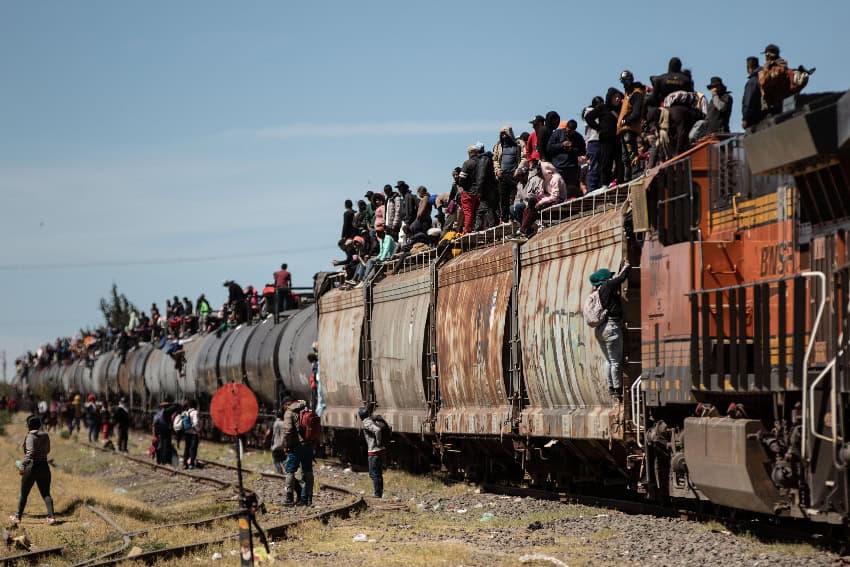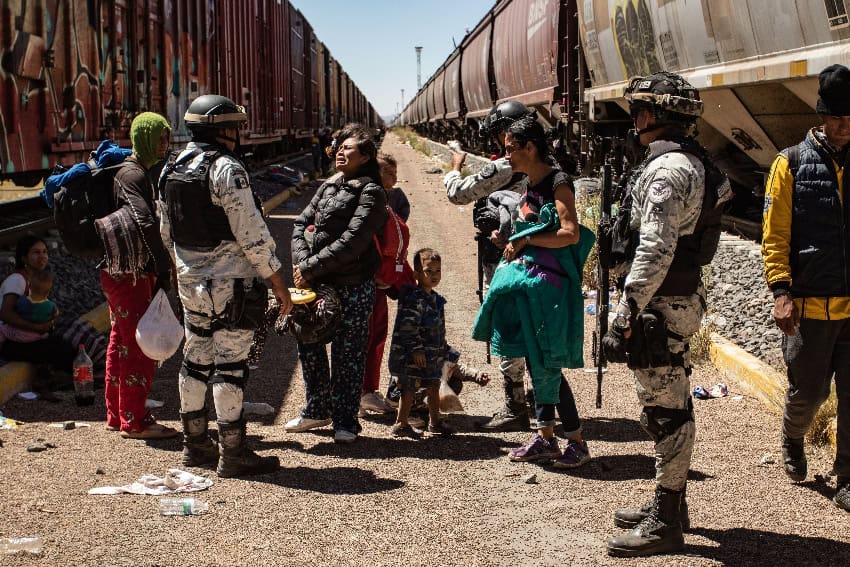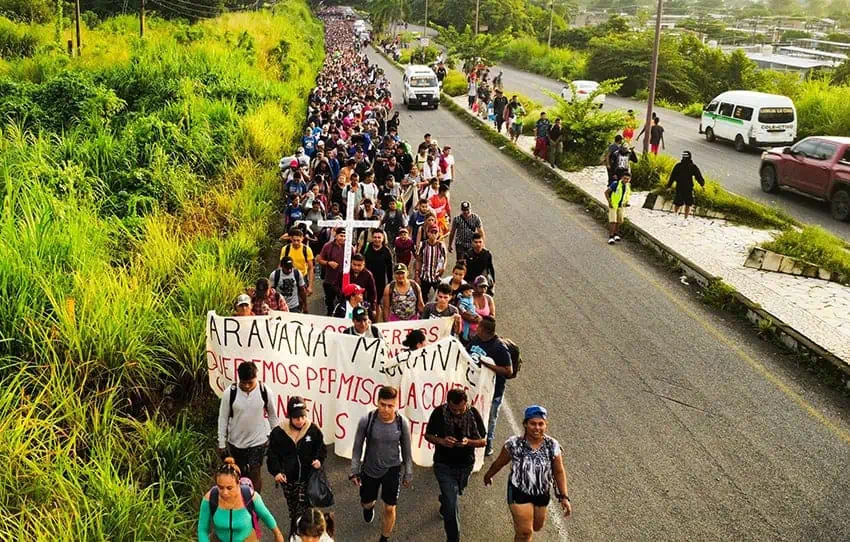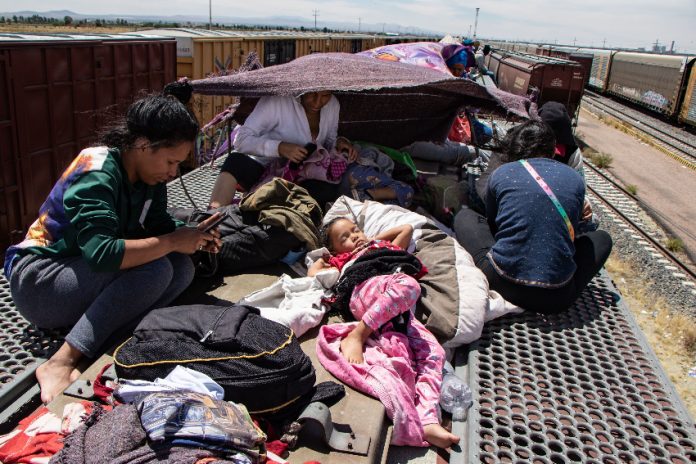Thousands of migrants spent close to a week stranded on or near stationary freight trains amidst oppressive climatic conditions in the northern state of Zacatecas.
As many as 3,000 migrants from Central and South American countries spent the weekend in the municipality of Cañitas de Felipe Pescador, where the train on which they were hitching a ride stopped in the early hours of Saturday morning.

They finally left on board a train headed for Torreón, Coahuila, on Monday afternoon, according to a social media post by a correspondent for the El Universal newspaper.
Temperatures in Cañitas de Felipe Pescador rose above 30 C on the weekend, and the migrants complained that National Immigration Institute (INM) agents prevented them from going into the nearby town to buy food and water.
The migrants were also stranded for long periods last week as the trains they were traveling on came to a halt on repeated occasions north of Zacatecas city.
The general secretary of the Zacatecas government said that logistical problems on railroads in the United States and Canada were to blame for the train stoppages in Mexico.
#Avanzan Miles de migrantes que estuvieron varados este fin de semana en #Cañitas, Zacatecas, por fin, avanzan en nuevo tren rumbo a Torreón, Coahuila … Se escuchan los aplausos y los gritos de felicidad pic.twitter.com/KERQJnAHWo
— Irma Mejía (@irmisme) May 6, 2024
A train left for Torreón, Coahuila on Monday and migrants cheered.
But migrants said that Mexican immigration authorities and the rail company Ferromex — which last year halted scores of services after a string of accidents involving migrants riding the rails — were not allowing any freight trains on which they were traveling to move north.
The stranded migrants are aiming to reach Mexico’s northern border before crossing into the United States. Hundreds if not thousands of migrants who made the journey before them sustained serious injuries including the loss of limbs when they fell from freight trains collectively known as “La Bestia” or The Beast.
One of the stranded migrants told El Universal that INM agents told her and others to abandon the rail tracks and start walking along the highway.
“[They said] that nothing will happen to us, but the people here believe that taking the highway is dangerous. … What’s waiting for us on the highways are the cartels,” said the woman, identified only as Mónica.
Migrants told El Universal that they were given food and water on Saturday but nothing on Sunday.
The newspaper El Sol de Zacatecas reported that INM agents stopped migrants from going into the town of Cañitas de Felipe Pescador to get food and water.
“We’re close to the town, but [the INM agents] made them close the shops,” said Bárbara, a migrant from Colombia.

“They don’t even give us water — nothing,” she said.
El Sol said that the migrants were also prevented from seeking assistance from locals.
“We’re not animals, be more humane,” said Helen Roque, a Venezuelan woman who is almost five months pregnant and traveling with her two-year-old son.
She and other migrants said that immigration agents tried to forcibly remove them from trains at different points during their journey. There were reports of physical aggression against migrants as they were traveling on trains in Zacatecas last week. One video showed a female INM agent hitting migrants with a metal bar, the Excélsior newspaper reported.
“They threaten to beat us, they throw away our water, they throw away our food, despite the presence of sick children,” Roque told El Sol.
She said she needed to get to the United States because her father is there and he is very ill.
Another Venezuelan woman, Anaís, told El Sol that her young son is sick and vomiting and defecating blood. However, he had not received any medical attention.
“[The INM officials] don’t care if we have kids, they just want us to do what they tell us,” Anaís said.
The Zacatecas government asked Ferromex to allow trains to resume their trips northward from Zacatecas, but that didn’t occur before the migrants endured a very difficult weekend in central Zacatecas.

In a report published early Monday, El Universal said that the Cañitas de Felipe Pescador train station had turned into “a time bomb that could explode in a large social and humanitarian problem” due to the situation faced by “almost 3,000 migrants.”
That possibility was apparently avoided by the departure of a freight train on Monday afternoon. Migrants can be heard clapping and cheering as they finally leave the Zacatecas town where they were stranded for more than two days.
As usual, significant numbers of migrants are traveling northward through Mexico after entering the country at the southern border with Guatemala. Last Thursday, authorities found more than 400 foreign migrants who were left “abandoned” in buses on a highway in the state of Veracruz.
Migrant numbers surged in 2023, during which there was a total of 782,176 “encounters” between undocumented foreigners and Mexican authorities, according to the International Organization for Migration. That figure represented a 77% increase compared to the previous year.
With reports from El Universal, La Jornada and El Sol de Zacatecas
